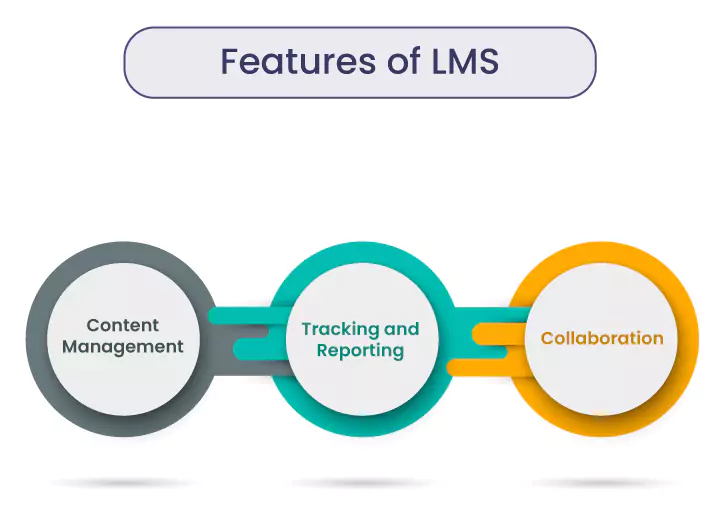
The current digital era is marked by rapid technological advancements driven by several factors, such as flexibility, convenience, and online training and learning effectiveness. However, one of the most significant challenges of online learning is keeping learners engaged. It is where learning management systems (LMSs) come in, and in this article, you will learn the various benefits of LMS. But first, you have to understand what LMS is. How can LMS deliver Online Training?
Learning Management Systems (LMS) have become increasingly popular in organizations worldwide. An LMS is a web-based software application to plan, implement, and assess distinctive learning processes. It stores, tracks, and delivers training materials, including videos, tests, quizzes, and surveys.
The LMS market size was estimated at USD 14.43 billion in 2021 and is predicted to rise to USD 40.95 billion by 2029 at a CAGR of 14.2%.
The global LMS market is driven by the rapid adoption of digital learning, increasing demand for cost-effective solutions, and focus on employee development. The growing emphasis on corporate training and the need for scalability also drives market growth. An LMS can be used to deliver online training to students or employees.
The eLearning mode of training is becoming increasingly popular as a cost-effective way to train learners on various topics. It can be used to deliver basic or advanced training or to provide refresher courses for employees who need to keep their skills up to date.
Online training is frequently used to train new employees on company policies or procedures or for students to access lectures and course materials from anywhere with an internet connection.
LMS can track the learner's progress through their online training. It provides a detailed record of which learners have completed their training and which still need to be trained. It also helps ensure employees receive a consistent and comprehensive training experience.
An LMS and online training can provide learners with the skills and knowledge needed for their assignments or jobs. With the right LMS and online training programs, organizations can ensure employees receive the training they need to succeed.
Through LMS and online training, learners can gain the skills and knowledge they need to perform their assignments. With the right LMS and online training programs, organizations can ensure employees receive the training they need to succeed.
For example, a comprehensive learning management system can enable companies and businesses to assign and track training, provide assessments to measure progress and generate reports for tracking performance against training objectives.
It can help ensure employees have the knowledge and skills to do their jobs effectively and efficiently. Further, the system can provide personalized learning paths for each employee, allowing them to focus on their areas of interest and expertise.
Also Read: Why Choose LMS Solutions for a Long-Term Business Success?
An LMS software application assists businesses in delivering, tracking, and managing training and education. LMS provides a variety of features that can help to improve learner engagement, including:
Content Management: LMS makes creating, storing, and delivering training content easy. It can include text, images, videos, audio files, and interactive exercises.
Tracking and Reporting: LMSs track learner progress and provide detailed reports on learner performance. This information can be used to identify areas where learners need additional support and to make adjustments to the training program as needed.
Collaboration: LMSs provide a platform for learners to collaborate with instructors. It can enhance the learning experience by making it more engaging and interactive.

In addition to these features, LMSs offer many other benefits for online learning; let's keep a note of the top 10 of them, including:
LMSs can reduce training costs by eliminating the need for travel, instructor fees, and printed materials. Learning Management Systems (LMSs) can save companies much money compared to in-person training. An LMS allows companies to reduce overhead costs associated with instructors, physical training venues, and other related expenses.
For instance, businesses can avoid paying expensive instructors for basic onboarding tasks. They can use an LMS instead to provide the same information and instruction to a large group of people. An LMS also reduces travel and lodging expenses involved with in-person training.
LMSs can improve learner engagement by providing various features that make learning more interactive and engaging. For example, LMSs features can include gamification, social learning, and real-time feedback.
Learning Management Systems (LMSs) can transform the learning experience by offering various features that enhance learning, boost motivation, and make the process more enjoyable.
As learners monitor their progress, they will gain a sense of achievement, empowering them to continue their educational journey. It is similar to a fitness journey; once a person starts, they will likely experience a cycle of progress, satisfaction, and motivation leading to further growth and development.
With a Learning Management System, students can access training material anytime from any location and device. It increases the convenience of accessing the material and reduces the time needed to complete a course.
LMS also allows for more flexibility, as students can learn at their own pace and take breaks when needed. With an LMS, companies can provide employee training worldwide, as long as there is internet connectivity.
It increases convenience for employees as they no longer have to travel long distances to attend training.
With Learning Management Systems, assessment and evaluation can be automated, which allows for more accurate and efficient grading. Additionally, LMSs provide the ability to track student progress and performance, allowing instructors to customize their teaching to meet the needs of their students better. An LMS allows companies to create online assessments that track employee progress and evaluate their performance.
For instance, companies can use an LMS to create a custom online exam for prospective employees to assess their knowledge and skills before hiring them. It helps companies to ensure that they are hiring the right people for the job and can save them time and money in the long run.
An LMS can also deliver employees online training and certification programs, helping them stay updated with the latest industry trends and regulations.
Many LMSs have built-in accessibility features to assist people with disabilities in using the system efficiently. It includes accessibility remediation, text-to-speech, alt-text, screen readers, and keyboard navigation.
For instance, alt-text describes images for screen readers, allowing people with visual impairments to understand the content of the images. Moreover, it helps in providing context and enhancing accessibility, helping more people to experience the content in a similar way.
These features help to ensure that all users, regardless of ability, can access the LMS and its content. It helps to create an inclusive learning environment and encourages greater participation from all learners.
An LMS allows companies to track and report employee training progress easily. It makes it easier to see which employees are succeeding and which need additional help or guidance.
LMS helps to ensure that employees receive the proper training and meet the company's goals. It also helps streamline the process, making it easier to manage and less time-consuming for the trainers.
For instance, when a company implements an LMS, managers can quickly see who has completed a course or is lagging, allowing them to intervene as needed. This emphasis on individual performance contributes to overall organizational effectiveness and efficiency, as it is a proactive approach to employee development.
An LMS allows companies to customize their eLearning courses to meet employees' needs. Companies can customize the content, the style of delivery, and the course modules' pace per the individual's learning style and preferences. It can help ensure the learner receives the most effective training possible.
For example, a company can customize a course to include branding, videos, audio recordings, and other interactive elements that make it more engaging. Companies can capitalize on their unique strengths by utilizing our custom eLearning content development services to customize their courses, create an enjoyable learning experience, and ensure their employees get the most out of their training.
An LMS allows companies to easily keep track of employee training progress to ensure compliance with regulatory requirements. A Learning Management System (LMS) allows users easy access to training materials. It allows them to learn independently and review content as necessary.
With a system, businesses can ensure that employees are updated with the latest standards, regulations, and safety protocols, enhancing compliance. An LMS allows companies to easily keep track of employee training progress to ensure regulatory compliance.
An LMS allows companies to scale up their training efforts as needed quickly. It makes it easier to offer employees new training programs as needed. It is because the LMS is cloud-based, which allows for rapid deployment, and it can automate processes, such as enrolling people in courses, which saves time. Additionally, the LMS can store large amounts of data, which makes it easy to access and update training materials.
An LMS can easily integrate with other business systems, such as Human Resources, accounting, and sales. Companies can manage their entire training process in one system. It helps to streamline the workflow and reduce costs. Moreover, it allows for greater visibility and control of the training process, enabling companies to track better and research data.
For example, an LMS can allow companies to automatically link their existing HR system to the LMS to assign or enroll employees in relevant training courses. This data can then be used to measure the training program's efficacy and identify improvement areas.
Also Read: Top 3 Challenges of Online Learning and How to Overcome Them?
In conclusion, learning management systems (LMSs) are a helpful tool for organizations that want to improve their online learning programs. As per a recent study by Global Fortune, 41.7% of 500 companies use E-learning technology to train their employees. There are several benefits of LMS, including reduced costs, improved learner engagement, increased convenience, improved assessment and evaluation, accessibility, and easier tracking and reporting.
An LMS is a great option if you want to improve your organization's online training program, and our company can assist you with the best possible deals. LMSs can help you save money, improve learner engagement, and make your training program more convenient and accessible. They can also help you track and report on your training progress, so you can see how well your employees are learning and make adjustments as needed.
References:
LMS market size
Power of e-learning
Share